In Japanese, anata あなた means multiple things: "you," a second person pronoun, "they," a third person pronoun, and, sometimes, it's a way to call one's "husband."It's also spelled 貴方, 貴女, 貴男, and 彼方.
Second Person Pronoun
Normally, the word anata means "you" in Japanese.
- anata wa dare desu ka?
あなたは誰ですか?
You are who?
Who are you? - kore wa anata no tame desu
これはあなたのためです
This is for your sake.
Compared to other second person pronouns, anata あなた is the more polite one.
- Context: the "great detective," meitantei 名探偵, doing his detective work.
- han'nin wa... anata da!!!
犯人は・・・あなただ!!!
The culprit... is you!!! - na!?
な!?
Wh!?
- nani!?
なに!?
What!?
- nani!?
Plural
The word anata takes two pluralizing suffixes, ~tachi ~達, and ~gata ~方, the latter being more polite.
- anata-tachi
あなた達
You and the others. You all. You guys. - anata-gata
あなた方
The ~ra ~ら suffix, which lacks politeness, isn't used with anata.
For reference, some data:
| ~ra | ~tachi | ~gata | ||||
|---|---|---|---|---|---|---|
| ら | 等 | たち | 達 | がた | 方 | |
| あなた | 0* | 0 | 611 | 78 | 577 | 657 |
| アナタ | 0 | 0 | 1 | 2 | 0 | 0 |
| 貴方 | 2* | 0 | 11 | 17 | 14 | 3 |
- Note: あなたら yielded results for anata rashii あなたらしい, "like you." 貴方ら yield 5 results, but only 2 were the suffix.
Avoidance
In spite of being the most polite, common second person pronoun, anata isn't used in Japanese as normally as "you" in English.
Japanese is a pronoun dropping language, which means sometimes you don't need to say "you" when talking about the second person. For example, if you ask a question, it's implicit the question is directed at a second person.
- e wo kaite-iru no.
絵をかいているの。
Are [you] drawing a picture? - un, hisashiburi ni kimochi-yoku kaketa
うん、久しぶりに気持ちよくかけた
Yes, for the first time in a while [I] was able to draw feeling good.- i.e. for the first time in a while, he was able to enjoy himself drawing.
- kaketa - past form of the potential verb of kaku 描く, "to draw."
If you know someone's name, it's proper to refer to them by name, with a honorific suffix like ~san ~さん.
- Context: Kobayashi 小林 goes to a nomikai 飲み会 with Tohru トール.
- puhaa
プハー
*beer sigh*
- A satisfied sigh complete with smoke coming out of her mouth and radiated lines emanating from her.
- shigoto-owari no ippai wa saikou da ne!!
仕事終わりの1杯は最高だね!!
The one glass [after]-work is the best, [isn't it]!!- owari - noun form of owaru 終わる, "to end."
- shigoto-owari - end of work, i.e. after one's work ends.
- Kobayashi-san φ kawaii
小林さんかわいい
Kobayashi-san is cute. (literally.)
Mr. Kobayashi is cute. (awful translation.)
[You], Kobayashi-san, are cute. (appositive translation.)
Kobayashi-san, [you] are cute. (sentence-initial vocative translation.)
[You] are cute, Kobayashi-san. (sentence-final vocative translation.)
A person can also be referred to by their title instead, like sensei 先生, "teacher," "doctor," among other meanings.
- Context: a doctor talks to a patient in wheelchair, who is also a criminal.
- ningen wa yari-naoseru.
人間はやり直せる。
Humans can do-over.
Humans can [start again].
- yari-naoseru - potential verb.
- yari-naosu
やり直す
To do over.
To do something again. - yaru
やる
To do.
- ima kara demo osokunai......
いまからでも遅くない・・・・・・
Even from now isn't late......- You can still start over, it isn't too late to begin now.
- sensei......
先生・・・・・・
Doctor...... - sensei to ore,
anmari toshi
chigawanai kedo............
先生と俺、あんまり年違わないけど・・・・・・・・・・・・
[You] and me, [our] ages don't differ much, but.........- We're about the same age, but...
- sensei...... oyaji mitai da.
先生・・・・・・親父みたいだ。
[You]...... are like [my] father.
Even polite ways to ask someone's name don't require anata.
- o-namae wo kiitemo yoroshii deshou ka?
お名前を聞いてもよろしいでしょうか?
Is [it] alright if [I] ask [your] name?- ~temo yoroshii - same as ~temo ii ~てもいい.
Usage in Advertising
One case where anata is normally used is to advertise products "to you," "for you," as "your X," etc., in messages directed at individuals part of the public, where it's impossible to know their names.
- anata ni pittari na nyuusu apuri
あなたにぴったりなニュースアプリ
A news app just for you.- A phrase used to advertise Hacka Doll, a now-defunct news app.
- Context: a job-search ad, and the source of a certain meme.
- uwa'... watashi no nenshuu, hiku-sugi...?
うわっ・・・私の年収、低すぎ・・・?
Yikes... my yearly income, is too low...? - {muryou go-fun de, tekisei nenshuu ya bijinesu kiso nouryoku ga wakaru} "shijou kachi shindan tesuto".
無料5分で、適正年収やビジネス基礎能力が分かる「市場価値診断テスト」。
The "market value diagnosis test" [with which] {in five minutes for free, [you] will know [your] suitable yearly income and base business ability}. - {uketa} hito wa yon-juu-man-nin wo toppa!
受けた人は40万人を突破!
The [number of] people [that] {received [the test]} [has] passed 400 thousand! - {kekka mo sugu wakaru} to dai-ninki da.
結果もすぐ分かると大人気だ。
[Because] {[you] know the results immediately}, [it] is very popular. - anata no tekisei nenshuu wa?
あなたの適正年収は?
Your suitable yearly income [is]?
Anata-sama
The phrase anata-sama あなたさま is the pronoun anata with the polite honorific suffix ~sama ~さま. It's also spelled 貴方様. The phrase anata-san あなたさん with the less polite ~san ~さん suffix is also possible, but less common.
Using honorific suffixes with second person pronouns is unusual, but valid.
In anime, this sort of language is typically used by servants, butlers, etc., when speaking to guests.
Third Person Pronoun
Originally, anata was used as a third person pronoun.(dictionary.goo.ne.jp)
This happens because anata comes from the group of kosoado words konata, sonata, anata, donata こなた, そなた, あなた, こなた.
Following the kosoado pattern, the ko~ morpheme is closer to the speaker (my side, me, I), so~ is closer to the listener (you), and a~ would be far from both speaker and listener (he, she, they).
"Husband"
The word anata can also be used by a wife to refer to her "husband," like "darling," "honey," etc. but it still just means "you."
Presumably, the reason for this is the proper, formal way to address someone is by name with honorific, and the less proper it gets the more familiar you sound, which is exactly why it can be considered disrespectful.
If it's okay to sound familiar, as opposed to formal, respectful and distant, then the honorific is dropped, and, in this case, the person isn't referred to by name, but by pronoun instead.
In anime, a scenario where this commonly happens is in the shinkon santaku 新婚三択 trope, where a newly husband is welcomed home by his wife who says okaerinasai anata おかえりなさいあなた and gives him three choices.
Anta
The word anta あんた is corruption of anata あなた.(デジタル大辞泉)
Since it's a corrupted word, it's less proper and won't sound as respectful. Unlike anata, anta can be used the non-respectful ~ra ~ら suffix to form anta-ra あんたら.
It's mainly used by women, but it's often used by men, too.It's particularly used by girls when calling out someone angrily, making it commonly used by tsundere ツンデレ characters when they're being tsun つん.(dic.nicovideo.jp)
Kanji
The word anata can be spelled with kanji in multiple ways, but it's normally spelled with hiragana, as あなた. The most normal kanji spelling of anata is 貴方.
貴男, 貴女
The spellings 貴男 and 貴女 are used when te person "you" refers to is a "man," otoko 男, and a "woman," onna 女, respectively.
彼方
The spelling 彼方 is an archaic one used in the kosoado sense of anata.(dictionary.goo.ne.jp)
It's homonymous with kanata 彼方, "over there."
References
- 彼方(あなた) - デジタル大辞泉 via dictionary.goo.ne.jp, accessed 2021-05-17.
- 貴方(あんた) - デジタル大辞泉 via dictionary.goo.ne.jp, accessed 2021-05-17.
- あんた - dic.nicovideo.jp, accessed 2021-05-17.
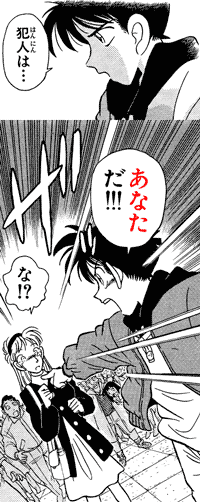
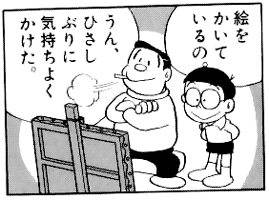
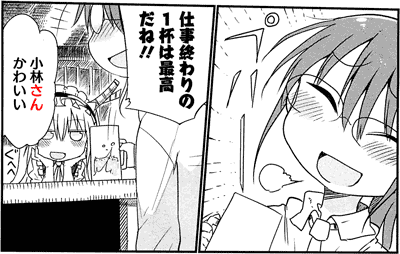
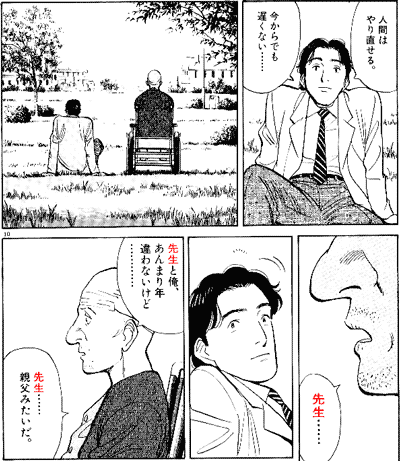
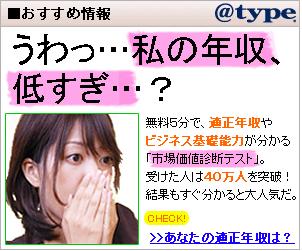
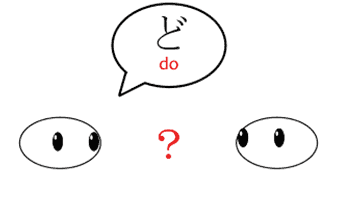
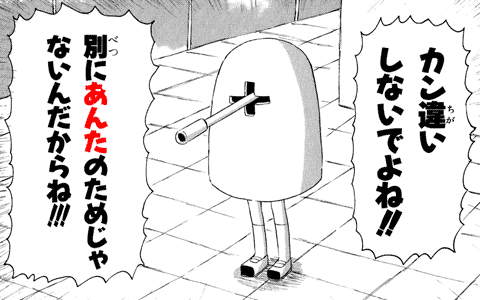
No comments: